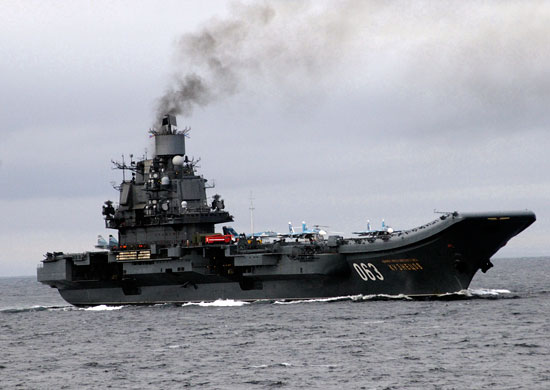A hard core for the defense. Who will dare to advance?

(BRUSSELS2) Crises, structures and a legal framework. Generally these are the necessary ingredients for Europe to decide to move. In terms of European defence, these ingredients are there. Yet European Defense remains motionless... Why?
Crises and structures: the surest way forward
On the crisis side, we are served. They are not lacking. But no crisis today really serves as a driving force for more decisive action on security and defence. In terms of structures, we have almost everything: a High Representative, who is rather enthusiastic; a European diplomatic service, rather competent, and a European Commission, rather voluntary. Finally, there is a legal framework: it was created by the Lisbon Treaty, laying the foundations for permanent structured cooperation (*) But it remains unused. It's not enough. We need a group of Member States capable of taking up the challenges, of supporting the projects. Contrary to what is sometimes said, it is not just a lack of political will that is in question, but self-confidence and confidence in others.
Progress will not be made at 28!
In terms of defence, as in certain European matters with a high degree of sensitivity, there can only be progress between States which trust each other, which accept that the 'other' does part of the job . It is not a sharing of sovereignty, it is a reciprocity of accepted sovereignties. In other words, providing a reinforced and effective defense to 28 Member States is impossible. This amounts to reconstituting NATO (without the United States) or the EU. This would have no interest from a military, political or economic point of view and would perpetuate the blockages. It would be an addition of impotence.
Define a hard core
What remains to be defined are therefore the States that will be part of this hard core, will commit to it, will put in place a charter of action and guidelines. For this device to work, a minimum of states are needed at the start: sufficient to start, reduced to be effective. These countries must have more than a niche function but a certain panoply of defense both in operational and industrial terms enabling them, if not to act in all sectors, at least to act in several. And as a hard core, there aren't many alternatives. Some countries cannot, do not want or should not be part of it.
Let's eliminate!
Let's be clear first. Even with a strong defence, the United Kingdom cannot, must not, cannot be part of this hard core. It is the simple insurance of failure. Because London will use its veto to block everything, as it has done since the beginning of the CSDP on the permanent HQ for example. In the same way, certain neutral countries - like Ireland or Austria - other countries which have little or no means - Cyprus, Malta - Romania, Bulgaria, the Baltic countries - cannot part. This reduces the range of possible axes.
The operational and industrial axes of the hard core
In operational terms, it would be logical to build this permanent structured cooperation around what has already succeeded at the operational level – EATC (strategic air transport command) – by aggregating satellite and maritime capabilities. In industrial terms, it would be logical to start with the countries which have a solid defense industry, therefore those of the LOI, the letter of intent bringing together the most important large countries in terms of defense (France, Germany, Italy , Spain, Sweden ...). This would make it possible to immediately have both an industrial and operational consistency.
The political axes of the hard core
Several political axes are possible to constitute the hard core. The first axis revolves logically around the political couple, driving force of the European Union, France and Germany. We are there in the classic dialectic of the fairly classic Franco-German, often difficult to handle in terms of defense, but which has the advantage of coherence and political force. One or two Benelux countries, Spain and Italy, or even Poland (ie the Weimar + format) or Finland and Slovenia could logically join this core. This would make it possible to carry out two types of operations: more offensive operations with rapid penetration (France-Spain-Belgium) and secondary operations, perhaps less offensive but of longer duration (Germany-Poland-Netherlands- Italy-Finland), more maritime or focused operations on the Southern or African flank (France-Italy-Spain-Slovenia) and more focused operations on the Eastern or Balkan flank (Germany-Poland-Netherlands-Finland). In short, we would have a certain complementarity and technicality.
The second axis revolves around Germany and Italy with countries that have the same conception of the parliamentary army, quite soft, towards the West (Netherlands, Spain, Portugal, ...) or the North (Sweden, Finland). This has the advantage of consistency but risks being a little weak from an offensive point of view.
We can conceive of a third axis around Germany and Poland which would bring together a little more countries from Eastern and Western Europe compared to the previous one.
Paris Berlin or Warsaw to cross the Rubicon
It now remains for one or two countries to decide to cross the country and propose the establishment of this defense structure. Few dare or can do it! But we can bet that from the moment a country comes out of the woodwork, others will follow. To have any chance of success, this initiative can only come from one of the axes described. Concretely Paris or Berlin, even Warsaw (but the Polish government seems to have other fish to fry, with the elections), with in support Rome or Brussels. The Germany of Angela Merkel in the grand coalition version seems to me to be ripe for accepting a proposal in which she would thus find an enforceability for her ambition for a new place in politics. But France may have to take the first step. The Normandy format where the speech with Russia takes place offers an excellent framework.
(Nicolas Gros-Verheyde)
(*) A proposal which did not come out of nowhere, it takes up the proposals of the Constitution, of the Barnier group of the Convention... and the conclusions of the 2003 Summit (Pralines) advocating a "Union for defense and European security"!

